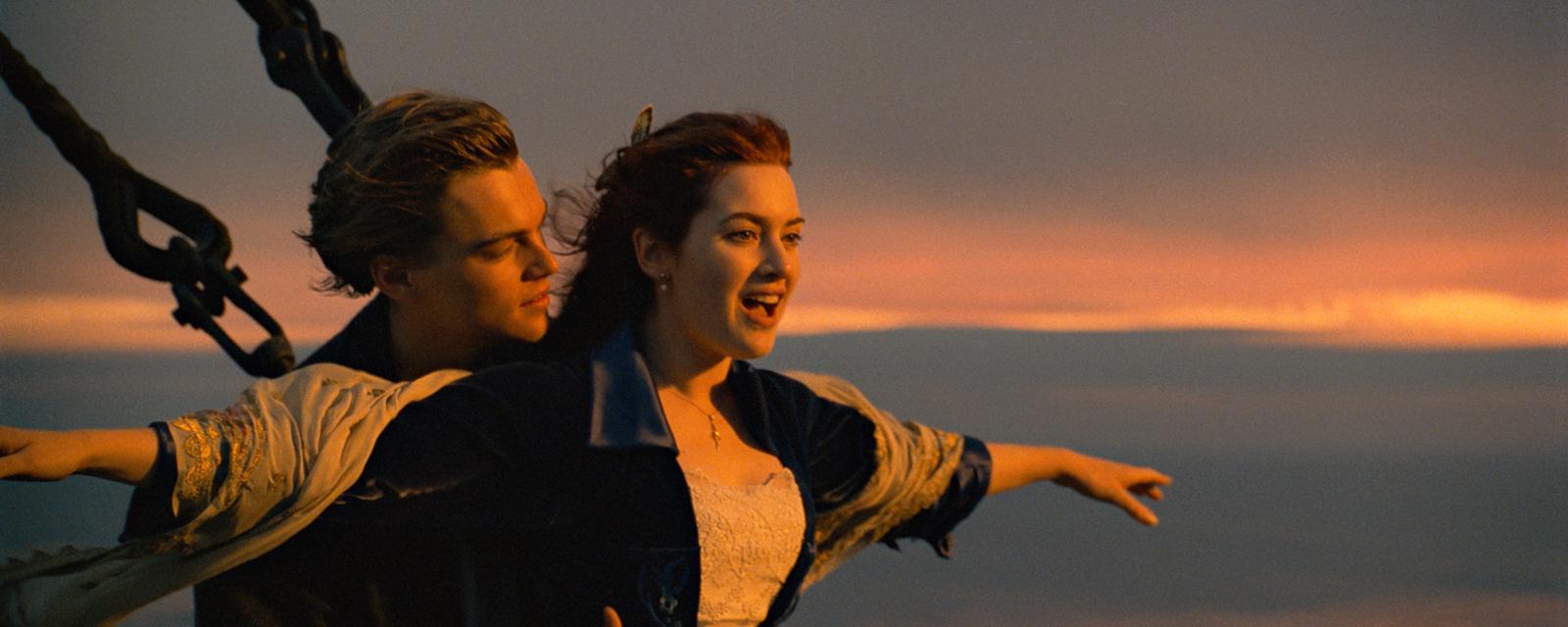The strangest of all the offshoots that James Cameron’s 1997 film inspired was a North Korean answer to the tale of two doomed lovers at sea. Simon Fowler takes a look.
With the passage of time and an onslaught of countless blockbuster films to take its place, it’s easy to overlook now just how much of a cultural and commercial milestone James Cameron’s Titanic was. Scooping 11 Academy Awards and generating over a $1 bn in worldwide box office receipts, the tragic love story against the backdrop of a proverbial sinking ship was a truly global phenomenon. But of all the pastiches that surfaced in popular culture, perhaps the most remarkable comes from North Korea, where the late dictator Kim Jong-il was inspired to make his own answer to the movie. Soul’s Protest, made some four years after Leo and Kate appeared on our screens, was a state-sponsored attempt by North Korea to ride the crest of Titanic’s glory and generate untold riches. But the film sank virtually without a trace at the box office despite boasting a cast of more than 10,000 extras, the first use of ‘state-of-the-art’ CGI in a North Korean feature film and a plotline that dramatised a disastrous naval ‘accident’ from Korea’s history.
Kim Jong-il himself had spent most of the 1970s and ‘80s going to extreme lengths to bolster the North Korean film industry; he wanted to elevate the cinematic arts beyond the creation of what he saw as ultimately flawed propaganda pieces. He sent directors abroad to Russia to study film, dramatically increased the budgets available to film-makers and even, it is claimed, kidnapped a director and star from South Korea to make movies for the regime.
Kim would stop at nothing it seemed to satisfy his cinematic obsessions. With a personal collection of Western films running well into the thousands, it’s a certainty that a copy of Titanic would have made its way into the screening rooms of Pyongyang’s elite. The universal themes of romance and tragedy would have resonated strongly with Kim – as would the bubbling class struggle and rivalry between the ‘below deck’ character of Leonardo DiCaprio’s Jack and the privileged villain Cal, played by Billy Zane. But by far the most appealing trait, the main one that would drive them to imitate it, was Titanic’s unwavering ability to make cinemagoers part with their hard-earned cash: something that the DPRK was in desperate need of.
Sinking feeling
In the late '90s and early 2000s, South Korea’s Sunshine Policy invited a thawing in the relationship between the nations of the divided peninsula. This enabled, among other things, North Korea to try its hand at films that would appeal to both sides of the 38th Parallel. Digging into both Koreas shared history, Soul’s Protest was an attempt to tell the tale of the Ukishima Maru, a ship that sank while attempting to return Koreans from Japan to their homeland at the end of World War Two. Of the 3,500 on board, around 550 died after the ship hit a landmine, although it was later claimed by North Korea that the Japanese deliberately sank the vessel to cover up the fact that Koreans on board had been used as forced labour during the war.
From a Korean perspective, Soul’s Protest was on politically safe ground because it pointed the blame squarely at the Japanese, fuelling the distrust a lot of Koreans felt at the time. Had the film included any overt pro-North Korean propaganda, it would have been banned under South Korean law. But viewed through a western lens, or by anyone with even a vague recollection of Titanic’s plot, Soul’s Protest quickly descends into farce as more and more of the distinctive elements of James Cameron’s film reveal themselves.
Imitation game
The film is directed by Kim Chun-song (himself an ethnic Korean born in Japan who repatriated) and opens with an elderly gentleman being accompanied by family members towards the sea. As the atmospheric music builds he takes from his pocket not the bejewelled ‘Heart of the Ocean’ that adorned Kate Winslet’s décolletage but an innocuous looking red neckerchief, that instantly transports his thoughts back to his long-lost love aboard the Ukishima Maru. Such ‘homages’ to Titanic are found throughout. No wonder: the director, cast and crew were made to watch the three-hour epic more than 100 times in preparation for making the film.
Whereas James Cameron had the deep pockets of Hollywood studios and cutting edge technology to help in his creation, the North Korean version managed to leverage the type of help only a dictatorship can manage. Sweeping crowd scenes in Soul’s Protest include a reported 10,000 soldiers mobilised for the shoot, while the very infrequent use of CGI to show the boat is mainly outweighed by scenes of the ship flooding from real gushes of incoming water.
The love story latches onto two of the most iconic scenes in Titanic and goes for slightly watered down approximations of them. The famous ‘flying scene’ in which Leonardo Dicaprio holds Kate Winslet up in the wind at the front of the ship has its North Korean equivalent take place on the top deck, with furtive glances and nothing more than a smile between the love-struck pair. And the climatic scene that ultimately parts the lovers on a raft on icy water definitely leads you to believe the crew must have had sketches of the famous Titanic scene on hand to replicate them.
Soul’s Protest’s attempts to copy are brazen and its marketing made no attempt to hide it. At the Moscow and Hong Kong Film Festivals, flyers for the film proudly proclaimed it "The North Korean Titanic” in much larger print than the actual title of the movie.
But tapping into that zeitgeist did bring eventual reward, when the film’s producer, Narai Film Company, purchased the South Korean distribution rights in 2001 for the not insubstantial sum of $375,000. For a film that was rarely seen outside the cinemas of North Korea and at the odd film festival, this was a huge opportunity to generate revenue and raise the profile of the country’s cinema. The success was short lived, however, when later that year a Japanese judge ruled that 15 of the survivors of the Ukishima Maru disaster be awarded $375,000 between them for exploiting the story of their lives without giving them credit.
As time passed no other international markets bought the rights to Soul’s Protest and the legacy of this bizarre footnote in filmmaking history still remains mostly hidden. As they said of the Titanic itself, an act of hubris on such a grand scale was ultimately destined to fail.
(BBC)
www.ann.az
Follow us !











